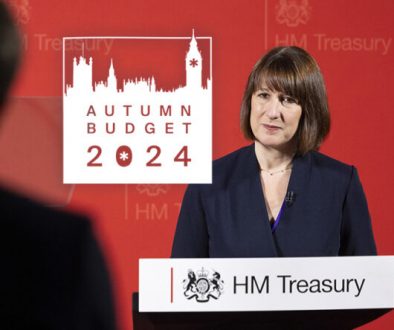The third of our Summer Series blog posts comes from Mark Hawthorn of Landmark Investments.
Landmark is a longstanding, reputable ground rent investment company with a vast asset portfolio spanning across the country. Ambitious, clear and professional.
Mark is a natural businessman and we often contact Mark to soundboard ideas, given his wealth of knowledge, experience and extraordinary black book of contacts.
In addition to being a highly successful entrepreneur, Mark is actively involved with various charities including NSPCC and Variety, and Mark was awarded a UK Points of Light Award from the Prime Minister, Boris Johnson, for his work in encouraging companies to donate over £1,500,000 to charity in December 2020.

Mark Hawthorn funded Wildbrook in their set up and has been an ongoing mentor support since. Without this it would have never happened. Mark is also, importantly, a good friend.
So, here we go with the third of the series…
- How long have you been working at Landmark and in the property sector?
I entered the industry as a 16 year old office junior at an estate agents back in 1997 on the princely sum of £40.00 a week. I set up Landmark in June 2000, so I’ve been in the industry 27 years and all my working life, with the group approaching its 25th anniversary. Sometimes it feels like forever, yet equally I can recall moments from 25+ years ago as if they were yesterday. I’ve still got a couple of contacts I met during estate agency all those years ago.
- How has the market changed over the past 12 months for new investment opportunities being introduced to you, and are the numbers up or down to last year?
Our main market is the ground rent market, which has been subject to political overreach and threats of new legislation which created instability. Fortunately, common sense shone through and the legislation that was passed is mostly sensible and balanced if still far from perfect. We also have a new Government who appear to understand the complex dynamics at play in the freeholder/leaseholder world as well as the good work professional freeholders do. Just to test us further we’ve also had rising interest and gilt rates as well as complex building safety legislation.
On a more positive note, the best opportunities are always available in a down market, you just need to recognise and capitalise. We have continued to acquire and perform and we are confident that these decisions will prove to be correct in due course. We did the same during the GFC, post-Brexit vote and even during the depths of covid so have developed a playbook for volatility that only really comes with experience of such situations.
- Can you recall your first ground rent acquisition?
I can’t remember which was first, and as I resold one in due course (around 20yrs ago) I don’t have the records. One was a £200.00 purchase from a bookkeeper who had inherited a portfolio of ground rents. We tidied them up, made a number of disposals at healthy returns and then resold them on. The other, which we still own, was initially listed on eBay – which is definitely not the right portal – so I contacted the vendor to explain the process to sell and struck a deal with him at £1,000. We have since moved on a touch, one development we acquired last year has a rebuild value of £750m and operates like its own village (ground rent is a fraction of this yet still sizeable).
- Landmark are clearly a stand out and obvious choice as a go to ground rent investor. Is there much similar competition, apart from the institutional long income funds?
It comes in waves and cycles. When we started out we were up against other, much larger, private investors many of whom we worked with and sold to where we couldn’t afford to acquire. The institutional investors started to enter the market around 2009, pricing out and then buying out many of the private investors. We again formed relationships with the institutional investors, which exist to this day, and have transacted hundreds of millions of assets for them. This generated a healthy fee income, as well as ongoing management services, which we used to reinvest in more ground rents. The institutions are not as active as they used to be as no new financial ground rents are being created so the scale isn’t there. Again, this presents a strong buy opportunity for us. We don’t expect any new entrants of scale as there isn’t the quantum available to make it worth their while. We tend not to look at anything under £250,000 now and there is still an active market below that level for smaller private investors. To an extent we sit in a space on our own, we are able to transact on large and complex ground rents, both residential and commercial, of all shapes and sizes, whilst remaining private and flexible. We have built up valuable infrastructure and internal capabilities over the years which would be almost impossible for a new entrant to replicate, this is one of the reasons why the institutions outsource to us.
- The sector provides long income and a diverse form of income to a portfolio for an investor. How easy is it to acquire a ground rent investment and how much legal due diligence is taken in a transaction?
Not easy, at all, if done properly. Taking the example of a 100 apartment scheme, which isn’t a big acquisition for us, you have 100 leases to review, often complex planning permissions and condition, plus insurance and service charge reviews (residential tends to have far more elements than commercial as it is 24/7 with people living in the buildings). On top of this we also undertake reviews, many of them physical, relating to the construction of buildings and fire safety risk. Post completion there is the fact that we would 100 new leaseholders, some owner occupiers others investors, many overseas, to onboard. We can often be acquiring portfolios of large numbers of buildings and properties so the complexity and requirements multiply by many magnitudes. We are presently live on an acquisition of around 6,000 apartments across around 200 individual buildings. Excluding this, our investment and management portfolio currently extends to well over 32,000 properties which we would estimate is over 50,000 leaseholders.
6. What is the one main challenge to ground rent investment right now, and how can it be overcome?
It would be incredibly helpful for leaseholders, freeholders and associated professionals to get clarity on the next steps from the Government. LAFRA was the last legislation passed by the Conservative party during wash up and was signed off around 7.30pm on the Friday. This rush job means there are a great many elements that are inactive and requires detailed and contentious secondary legislation and prescribed rates.
Light stuff:
- Where have you holidayed this year?
I have been fortunate to enjoy a number of trips, a particularly memorable one was a large group of property and business people who went to the South of France for Tom Bloxham’s 60th celebrations. Everybody knows Tom is very social and he curated the perfect mix of business and pleasure.
- What one thing (only) would you take with you to a desert island?
Kindle, on the basis it would provide unlimited reading.
- Desert island discs – which one album would you take?
Definitely Maybe, by Oasis.
- Are you a book reader, podcaster or both?
I used to say I read a lot but I’ve changed that to “I consume a lot of information and knowledge”. This came from a realisation that I read a lot of books and listen to books and podcasts. I also read lots of newsletters and digital or print magazines. On top of this I will also devour information across Twitter/X, LinkedIn and a host of others. Many years ago most knowledge did come from traditional reading whereas now it’s far more diverse.
- Where is your favourite location that you have visited for holiday, and why?
If pushed my favourite type of holiday would be skiing – food, drink, fresh air, scenery and lots of skiing. However, if pushed on a location then it would have to be Las Vegas which I’ve visited around 12 times. There is the casino side, but I find that is a bit part as there are incredible restaurants, shopping, culture and entertainment. If you can get over the fact that it’s basically one crazy road lined by monstrous hotels (up to 7,000 rooms) it does tick a lot of boxes. For contrast I’ve also enjoyed a couple of trips to Marrakech which is a complete assault on the senses at every turn.
Hopefully you enjoyed the third series of the blog post and if you want to get involved just drop us a line.
Thanks to Mark for his time and his thoughts. To make contact with Mark Hawthorn and his team at Landmark, his email is as follows: [email protected]




